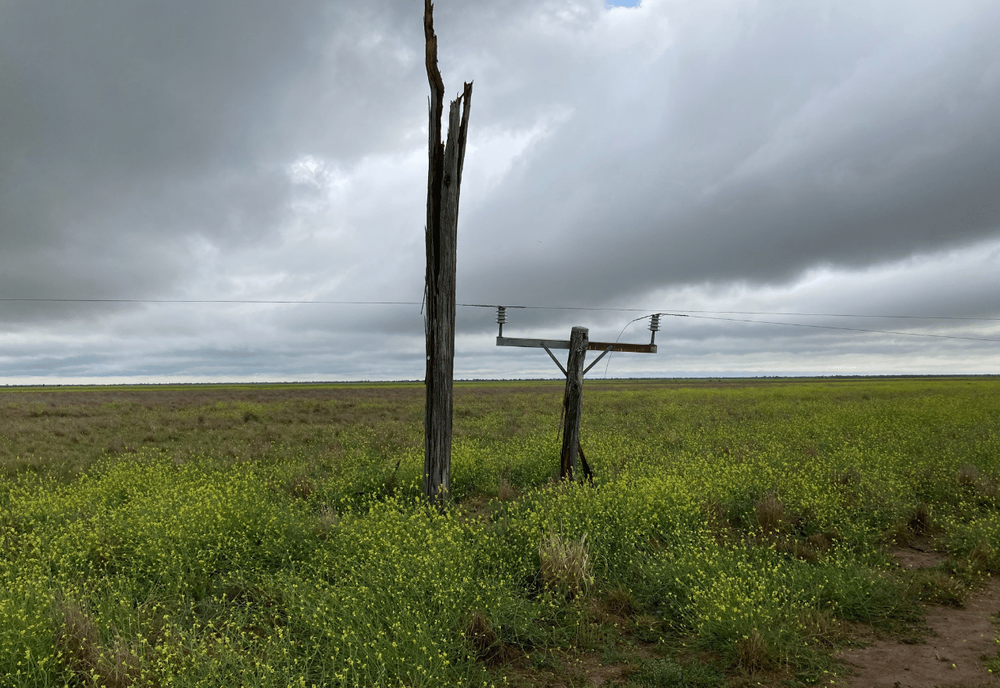Private power poles not an asset
Lee O'Connor
29 March 2022, 6:20 AM
 It could be a good idea to check who owns the power poles on your property.
It could be a good idea to check who owns the power poles on your property.Private landowners across regional areas of NSW are gradually being alerted to the fact that they are now the proud owners of poles, wires and other electricity infrastrucutre on their properties - and responsible for at least some of the repairs and maintenance.
At the beginning of June last year, Ian Smith received a letter advising that electricity provider Essential Energy had found defects in an 'overhead electrical installation' during a routine inspection of 'electricity network assets' located on his property east of Coonamble.
The letter also informed Mr Smith that he had to arrange for the problem to be rectified within a certain timeframe and that he was required to find his own appropriately-qualified electrical contractor to do the work.
According to Mr Smith the information came as a bit of a shock.
"To repair it we have to get a Level 2 technician and they told me they can't even buy some of the parts they would need," Mr Smith said.
"I think it's a bit abrupt. I think we're being forced into it and most people would have a few poles on their properties going to shearing sheds and pumps, not just their house."
According to Mr Smith, past defects had either been repaired by local Essential Energy crews - or not - with some visible defects that he has reported going unaddressed for many years.
"They're now saying that they have mistakenly maintained my power poles over the years," Mr Smith said. "And I have to get this work done because now it is deemed dangerous."
"I'm not blaming the local blokes, they can only do the work they're allocated.
"If you want me to be responsible for repairing it you're going to have to prove that I own it. It was only a few years ago I was not allowed to put a meter box on their pole because it wasn't mine."
Both Essential Energy and the Department of Planning, Industry & Environment have confirmed that the responsibility of the network distributor ends at the customer connection point which is usually – but not always - the first pole on their land.
"Landholders are responsible for network maintenance beyond this point, similar to owners of home and business premises being responsible for internal wiring maintenance," an Essential Energy spokesperson said.
"How the connection point is determined … depends on the installation configuration and how it was installed."
Both bodies say that ownership is not being 'gifted' to landowners.
"Most electricity poles and wires beyond this first connection point are, and always have been, privately owned," said a Department spokesperson.
Following the fires in the Blue Mountains in 2013 and further legislation in 2018, electricity distributors are now required to enforce the policy for landowners to pay for the maintenance of privately-owned energy infrastructure.
"For many years electricity network operators have inspected, and in some cases maintained, private poles and wires beyond their legislative obligations as a public goodwill gesture," the Department spokesperson said.
"However, with the commencement of the Australian Energy Regulator’s Ring-Fencing Guidelines from January 2018, maintenance and rectification of private assets has been classified as contestable work."
"All network operators across NSW (Ausgrid, Endeavour Energy and Essential Energy) now require owners to maintain private poles and wires, to avoid these costs being paid by all electricity consumers
leading to higher bills for other customers that don’t benefit from the private power poles," the spokesperson said.

This power pole near Baradine snapped during a storm in September 2021. Some landowners are claiming that they are being left with responsibility for sub-standard power infrastructure.
The new approach applies across the country and awareness is gradually seeping through as unsuspecting landholders are advised of issues requiring their attention.
"Unfortunately, confusion about ownership may have arisen when properties changed hands or were subdivided," the Essential Energy spokesperson said.
"To resolve any past confusion and clearly indicate ownership going forward, Essential Energy Asset Inspectors are progressively ensuring that all power poles on a customer’s property are inspected and any private poles are appropriately labelled with a ‘PP’ prefix."
"As inspections are being carried out, Essential Energy is writing to customers, clarifying ownership of electricity network assets and private assets and corresponding responsibilities."
With recent flood, fires and storm events inflicting additional damage onto the network of poles and wires, the issue of who is responsible for power pole repairs could come as a nasty shock to private landholders across the west.
Now could be a good time to check.




